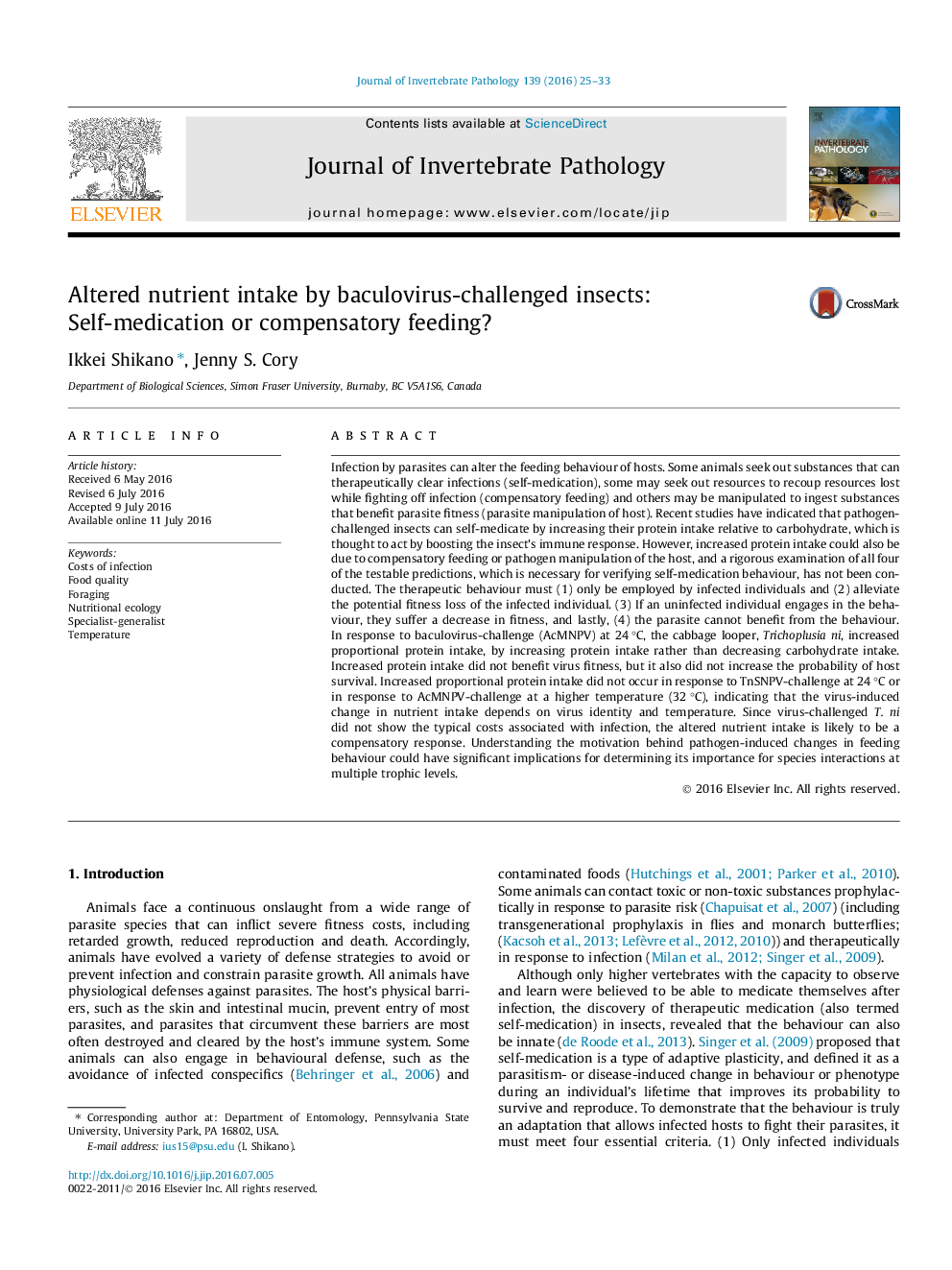| کد مقاله | کد نشریه | سال انتشار | مقاله انگلیسی | نسخه تمام متن |
|---|---|---|---|---|
| 6389304 | 1628213 | 2016 | 9 صفحه PDF | دانلود رایگان |
- We tested if higher protein intake by virus-challenged insects was self-medication.
- Altered nutrient intake was dependent on virus identity and temperature.
- Feeding behaviour by AcMNPV-challenged insects met some criteria for self-medication.
- No costs associated with virus-challenge suggest compensatory feeding involved.
- Altered feeding behaviour can affect species interactions at multiple trophic levels.
Infection by parasites can alter the feeding behaviour of hosts. Some animals seek out substances that can therapeutically clear infections (self-medication), some may seek out resources to recoup resources lost while fighting off infection (compensatory feeding) and others may be manipulated to ingest substances that benefit parasite fitness (parasite manipulation of host). Recent studies have indicated that pathogen-challenged insects can self-medicate by increasing their protein intake relative to carbohydrate, which is thought to act by boosting the insect's immune response. However, increased protein intake could also be due to compensatory feeding or pathogen manipulation of the host, and a rigorous examination of all four of the testable predictions, which is necessary for verifying self-medication behaviour, has not been conducted. The therapeutic behaviour must (1) only be employed by infected individuals and (2) alleviate the potential fitness loss of the infected individual. (3) If an uninfected individual engages in the behaviour, they suffer a decrease in fitness, and lastly, (4) the parasite cannot benefit from the behaviour. In response to baculovirus-challenge (AcMNPV) at 24 °C, the cabbage looper, Trichoplusia ni, increased proportional protein intake, by increasing protein intake rather than decreasing carbohydrate intake. Increased protein intake did not benefit virus fitness, but it also did not increase the probability of host survival. Increased proportional protein intake did not occur in response to TnSNPV-challenge at 24 °C or in response to AcMNPV-challenge at a higher temperature (32 °C), indicating that the virus-induced change in nutrient intake depends on virus identity and temperature. Since virus-challenged T. ni did not show the typical costs associated with infection, the altered nutrient intake is likely to be a compensatory response. Understanding the motivation behind pathogen-induced changes in feeding behaviour could have significant implications for determining its importance for species interactions at multiple trophic levels.
179
Journal: Journal of Invertebrate Pathology - Volume 139, September 2016, Pages 25-33
